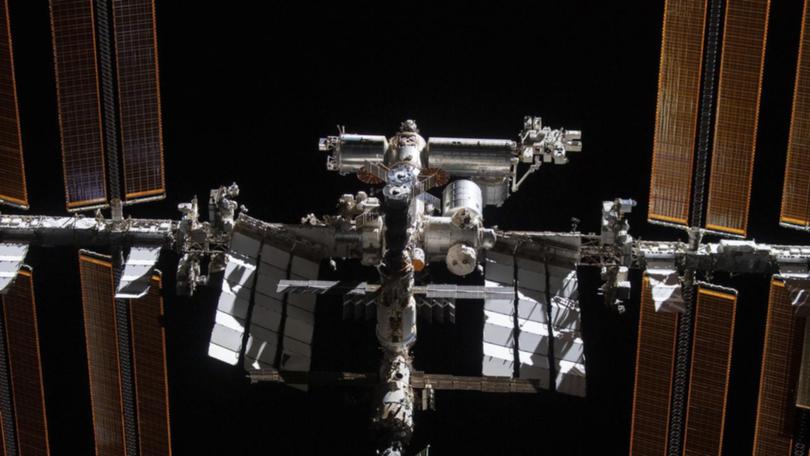Terror in space: Russian satellite breaks into 100 pieces and forces ISS astronauts to take shelter
Astronauts on the International Space Station have taken shelter after a Russian satellite broke up into more than 100 pieces.

A defunct Russian satellite has broken up into more than 100 pieces of debris in orbit, forcing astronauts on the International Space Station to take shelter for about an hour and adding to the mass of space junk already in orbit, US space agencies say.
There were no immediate details on what caused the break-up of the RESURS-P1 Russian Earth observation satellite, which was declared dead in 2022.
US Space Command, tracking the debris swarm, said there was no immediate threat to other satellites.
Sign up to The Nightly's newsletters.
Get the first look at the digital newspaper, curated daily stories and breaking headlines delivered to your inbox.
By continuing you agree to our Terms and Privacy Policy.The event took place on Wednesday, Space Command said.
It occurred in an orbit near the space station, prompting US astronauts on board to shelter in their spacecraft for roughly an hour, NASA’s Space Station office said.
Russia’s space agency Roscosmos, which operated the satellite, did not immediately respond to a request for comment.
Radars from US space-tracking firm LeoLabs detected the satellite releasing several fragments up until eight hours later, the company said.
US Space Command, which has its global network of space-tracking radars, said the satellite immediately created “over 100 pieces of trackable debris”.
Large debris-generating events in orbit are rare but of increasing concern as space becomes crowded with satellite networks vital to everyday life on Earth, from broadband internet and communications to basic navigation services as well as satellites no longer in use.
Russia sparked strong criticism from the US in 2021 when it struck one of its defunct satellites in orbit with a ground-based anti-satellite (ASAT) missile launched from its Plesetsk rocket site.
The blast created thousands of pieces of orbital debris.
In the roughly 88-minute window of RESURS-P1’s initial break-up, the Plesetsk site was one of many locations on Earth it passed over but there was no immediate indication from airspace or maritime alerts that Russia had launched a missile to strike the satellite, space tracker and Harvard astronomer Jonathan McDowell said.
